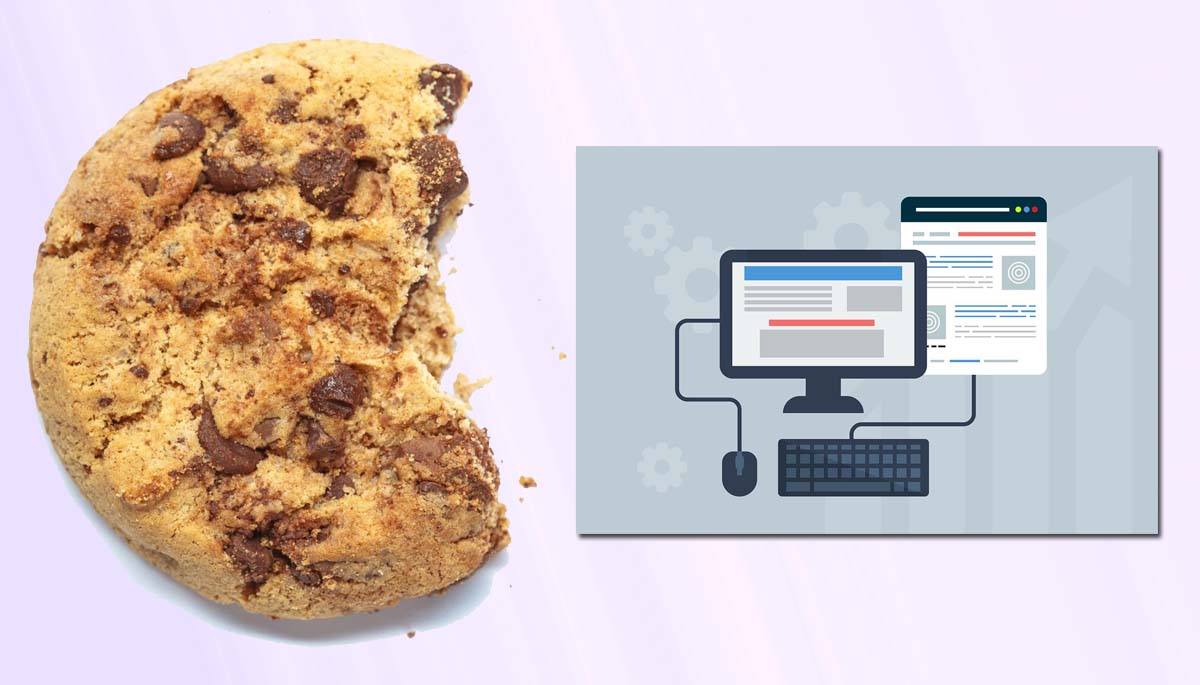
What’s the Connection Between Website Cookies and User Privacy?
Businesses want to remember their customers as much as they want the customers to remember them.
When you want to remember your customers, website cookies come into the picture. They let websites remember you, your logins, shopping carts, etc. So, taking care of your online privacy can be overwhelming. However, even having a fundamental understanding of cookies will help you keep unwanted eyeballs off the internet radar.
Some websites let you choose whether you want to accept the cookies or not and here you also think about should i accept cookies from websites. Before moving to whether or not to select ‘yes’ or ‘No’, it’s important to understand the cookie policy and how it is related to the user’s privacy. After all, 41% of all the websites use cookies and 22.9% use the persistent cookies. Let’s take a look at the cookie policy and see what are cookies used for.
What is a cookie privacy policy?
If your website uses cookies, it needs a cookie privacy policy. Period.
A cookie privacy policy consists of a list of all the cookies used on a website with detailed information about each cookie. It helps users understand how their data is used, how long websites collect cookies, how long they stay, etc. However, a cookie privacy policy isn’t similar to a privacy policy. A privacy policy includes information about the data you process, collect, store, or transfer.
While a cookie policy strictly monitors the cookies that track user data. However, whether you’re a consumer or a business, protect yourself from the following features of cookies:
- Always be cautious when enhancing personal information since cookies can communicate this information
- Turn off cookie storage as it’ll reduce the amount of information enhanced
- Always keep an updated anti-malware
- Add third-party plug-ins that block unnecessary cookie storage and keep your surfing private
- When a website asks you whether to store cookies or not, click No when you’re unsure
Businesses need to be transparent when it comes to data processing activities. Moreover, today’s users prefer businesses that are transparent about their data storage and usage practices. Hence, a cookie policy is vital to building trust with your customers.
Now that we know what a cookie policy is let’s take a step further and see the connection between website cookies and user privacy.
1. Cookies help offer personalized experiences
One of the critical features of cookies is to collect user data and use it to personalize the user experience. The real question is how cookies use data to personalize user experiences.
Well, the presence of cookies makes your experience in browsing applications or websites more seamless than ever. This benefits both users and businesses.
Below listed are a few ways cookies collect and track user data:
Saves login information
The primary function of cookies is to store user login information. It’s essential since it’ll help improve the user experience on the website the next time they visit. Moreover, with cookies, users won’t need to manually write their login credentials the next time they log in.
Offers personalized references or items
Besides saving login information, cookies also provide content and references to users. For instance, cookies remember the type of content you often visit and recommend similar content. It’s supposed to enhance your user experience, eventually leading to more engagement on your website.
Collecting cookies isn’t inherently a lousy marketing practice unless the data gets misused or users have a threat of data breaches. More than collecting user data, it’s more about what information you are collecting and why.
2. Enable targeted marketing
Cookies remember site settings once modified by the users. For instance, they remember language preferences, resolutions, etc., selected by the users on the web page. Later, when a user reaccesses the website, it’ll automatically offer the settings based on their previous choice.
This data collection of user preferences enables targeted marketing. Targeted marketing is simply targeting a sub-group of audience from the whole set audience to promote a service or a product. E-commerce business owners use targeted marketing the most to promote their services effectively.
Site owners collect information such as keywords, locations, search queries, etc., to devise a marketing campaign for the sub group. Facebook is one such platform that uses cookies to show ads relevant to each user. The benefit of collecting this data is only interested users will be able to view the products of your website.
While SERM (Search Engine Reputation Management) is crucial for businesses to stand out, using cookies optimally is equally important. Targeted marketing is especially important for ecommerce businesses given the amount of e-commerce stores today.
3. Language and location preference

As stated in point one, users’ data could help personalize their experience on the website. Besides login information, cookies are also used for language and location tracking. Tracking this specific parameter is excellent in helping you understand where your consumers are coming from.
Understanding who the shoppers are and where you can find them makes it easier to build a really effective marketing strategy. With the help of cookie tracking, you can implement localization practices, eventually boosting conversions. Moreover, it enables users who browse in other languages to save their language preferences when they return to the web page.
Analyzing this parameter can go a long way in increasing the time spent on the website.
4. Time spent on the website
Cookies tell you how long a user stays on a web page.
By analyzing the time spent on the web pages, you will understand whether your page’s content is engaging enough. This parameter is helpful for anyone looking to enhance their web traffic or identify ineffective pages. Moreover, it suggests whether your links work correctly and if your web copy converts how it was meant to.
For instance, if you find a set of pages that causes users to log off quickly, it may be time to get rid of those pages. While if some pages receive a lot of long-term visits, they would be effective in pushing paid ads or even promotions.
- Cookies help businesses understand whether the content is targeted to the right audience
- If landing and checkout pages have higher time spent, there could be obstacles to conversion.
- It gives you a glimpse into whether you need to revamp CTAs.
So, through analyzing the time spent by users on a web page, you can have many insights on the content relevance, CTA placements, etc. While this may benefit businesses to improve their marketing game, it doesn’t prove to be useful to users. At times, instead of enhancing user experience, tracking their time on a website rather leads to keeping a track of a user’s activity across several websites.
5. Subpages users visit
Information architecture refers to the structural design of a website. A well-structured website allows users to seamlessly flow down the sales funnel, resulting in strong conversions. While a poorly built website with a weak information architecture leaves users confused and stuck at dead ends, leaving them dissatisfied with any product offerings.
With cookies, along with subpages visits, you also get ot know the following data:
- Bounce rate of each page
- Engagement rate for each sub page
- Difference in engagement rate between different sub pages and understanding the reason for it
- Number of visits per sub page
So, when you analyze what subpages a user visits on your website through cookies, you can determine how effective your information architecture is and whether it needs to be revamped. Paying attention to this parameter helps you create a high-performing and qualitative website.
Keep user privacy at the core
Cookies have their cons. However, they still prove to be one of any business’s most powerful marketing tactics. It is a great way to find who is searching for your product, where they are searching from, how likely they are to visit your website, etc. All these parameters help businesses revamp or create new marketing strategies, if required.
It’s impractical to say that cookies will forever be non-existent. However, businesses need to consider users’ data privacy if they don’t want their credibility at stake. Ensure you use cookies for meaningful purposes, and always let your users know how you will use their data. Give them free will to only allow specific information for them to trust your business.


